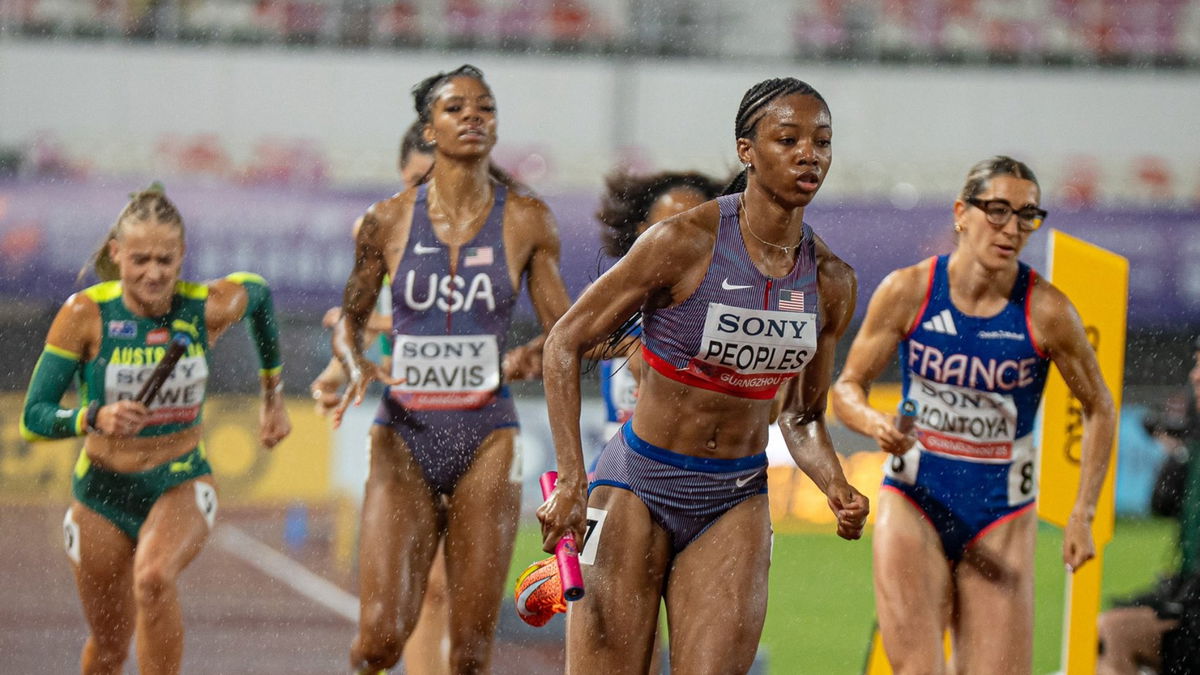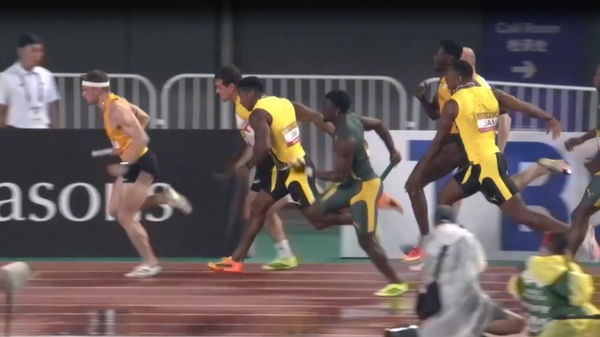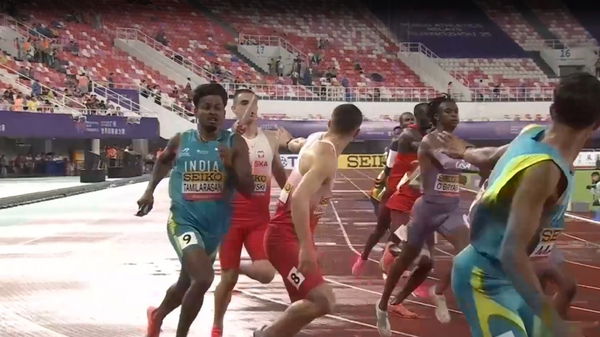
Imago
Credits: X

Imago
Credits: X
As the track and field world tuned in to watch speed, precision, and national pride collide at the 2025 World Relays, few could have predicted the controversy that would erupt. Not on the track, but at the border. It wasn’t a dropped baton or false start that dashed the hopes of some nations. Instead, their shot at qualifying for the World Athletics Championships was lost thousands of miles away, tangled in the red tape of visa denials.
Watch What’s Trending Now!
When the dust settled on the relay weekend in Guangzhou, the absence of some major sprinting nations was impossible to ignore. Behind the scenes, an administrative nightmare had unfolded. Athletes from Nigeria and the Dominican Republic, teams known for their explosive performances, were left grounded. Chinese officials had reportedly denied entry visas to both squads, forcing them to pull out of the competition entirely. For these athletes, the track remained a dream never realized. Not for lack of preparation or talent, but due to a bureaucratic blockade they never saw coming.
Former Olympic champion and track veteran Justin Gatlin has voiced strong opinions about the situation. Speaking on his Tidal League Podcast, with co-host Rodney Green, Gatlin didn’t hold back in his call for accountability and action. While he acknowledged that international track events are sometimes marked by harsh rules and tough luck, this situation, he argued, went beyond sport. The athletes never got a fair chance. “I hope that World Athletics comes and puts on a last chance kind of style meet,” Gatlin said. “They usually have it like at Zurich. I hope that there’s an opportunity where World Athletics constructs a showcase to where certain teams legitimately did not have an opportunity to go to the world relays and compete, and the ones that maybe dropped a baton gets the opportunity to compete,” the US track legend further added.
ADVERTISEMENT

ADVERTISEMENT
Gatlin’s comments reflect deeper frustration felt by many in the athletics community. The idea that a federation’s logistical hiccups, or in this case, outright government decisions, could determine an entire team’s fate runs counter to the spirit of global sport. It’s not just about the missed opportunity at the Relays. For many of these sprinters, the World Championships represent a once-in-a-lifetime goal, and being cut off from that path through no fault of their own is a bitter pill to swallow. Gatlin noted how cold and cutthroat the track world can be when the system fails athletes. The message often received is: Tough luck, see you in a year. If you’re lucky.
As the fallout continues, the call for World Athletics to step up is growing louder. The idea of a “last-chance” meet is gaining traction. Not just as a solution, but as a statement that fairness still matters in the sport. Athletes train their whole lives for seconds of performance, and when those seconds are stolen by paperwork and politics, the sport itself takes a hit. Whether World Athletics will act remains to be seen. But one thing is clear: for some of the world’s fastest runners, this race ended before it even began. Meanwhile, in the face of widespread controversy, China did apologize.
ADVERTISEMENT
China breaks silence with apology after Nigeria’s World Relays visa fiasco
In a move to douse diplomatic tensions, China has issued a formal apology to Nigeria after a visa debacle derailed the West African nation’s participation in the 2025 World Athletics Relays. The Chinese Embassy in Nigeria called the episode an “accident” and expressed deep regret over the events that forced Nigeria’s last-minute withdrawal.
Leading a delegation to the National Sports Commission (NSC) in Abuja, Culture Counsellor Yang Jianxing struck a rare, candid tone. “We are sorry and we regret it in its entirety,” he said during the high-level meeting, describing the incident as an unfortunate misstep rather than a deliberate exclusion. “We are here to let the Sports Commission know that the Chinese Government holds Nigeria in high esteem.”
ADVERTISEMENT
Top Stories
Drake Maye Reveals Shoulder Injury Update as Patriots QB Announces News On Super Bowl Availability

Dak Prescott Officially Puts Jerry Jones & Cowboys on Notice, Threatens Action on George Pickens Contract

NFL Sends Muted Warning to Bad Bunny Before Super Bowl Halftime Performance Amid ICE Controversy

Rob Gronkowski Demands Severe Punishment for Andy Reid After Bill Belichick Snub

Travis Kelce Makes Sporting Return as Teammate Gives Update on Chiefs TE’s Retirement

PGA Tour Split Into Two as Scottie Scheffler Confirms Stance on Patrick Reed’s Return


ADVERTISEMENT
The apology marked a turning point in what had spiraled into a diplomatic embarrassment. Despite accusations of “gross administrative incompetence” from Nigerian officials, the Chinese side maintained that the issue stemmed from miscommunication and timing, not malice. In a statement defending its actions, the Embassy detailed how it “immediately activated the expedited procedure” once visa materials were received on May 6 and completed issuance by May 8.
Still, Beijing’s reconciliatory tone stood out. “We regret that the Nigerian athletes were unable to participate in the event in China this time,” the Embassy stated, while proposing new frameworks to foster bilateral sports relations. The gesture was well received. NSC Chairman Shehu Dikko called the visit “a huge sign of better things to come,” while Director General Bukola Olopade praised the delegation’s diplomatic conduct, saying, “Your humility and diplomacy are the best I have seen anywhere.” China’s apology may not erase the setback, but it signals a renewed commitment to rebuilding trust through sports diplomacy.
ADVERTISEMENT
ADVERTISEMENT
ADVERTISEMENT